 |
Photos of the Day:
|
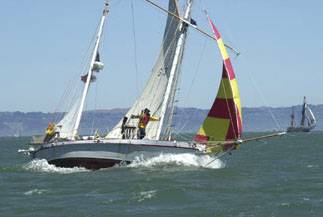 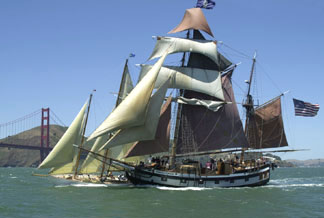 We'll have a feature in the July issue. |
 |
Photos of the Day:
|
  We'll have a feature in the July issue. |
Spinnaker CupJune 2 - San Francisco to Monterey The sixth annual Spinnaker Cup, co-hosted by Monterey Peninsula YC and San Francisco YC on Friday, May 28, was easily the best one ever - perfect weather, a record number of entries (58, compared to 49 last year), and a new course record. Mark Jones' Andrews-designed TP-52 Flash hit a top speed of 22.7 knots while sailing the 88-mile course in 7 hours, 53 minutes - knocking 4 minutes, 32 seconds off Pegasus 77's 1999 record. Most of the fleet pulled into Monterey between 10 pm and 2 am, and MPYC's hospitable little clubhouse rocked into the wee hours. 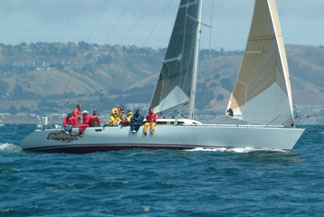 Roller Coaster, Big Boat Class Winner 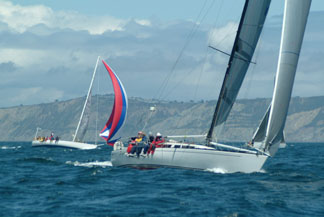 Equity Kicker and Surfer Girl (2nd in Big Boat Class) The inside route was the way to go this year, with winds up to 30 knots reported off Año Nuevo and Davenport versus just 15-20 knots five miles further out. Class winners were Roller Coaster (SC 50, Jack Gordon), Scorpio (Wylie 42, John Siegel), Shaman (Cal 40, Steve Waterloo), Desperado (Express 27, Mike Bruzzone) and Sleeping Dragon (Hobie 33, Mark Halman). The latter boat, which sailed doublehanded, was also the overall winner. See www.mpyc.org for full results. |
 Equity Kicker 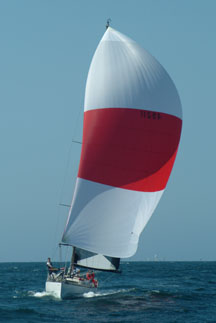 Emily Carr 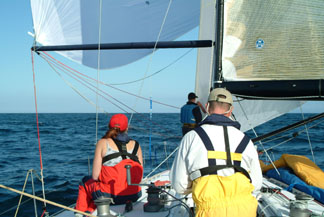 Onboard Morpheus |
Tom Kulinski Killed in Car AccidentJune 2 - Bay Area |
Cruising Alaska Instead of Winning
|
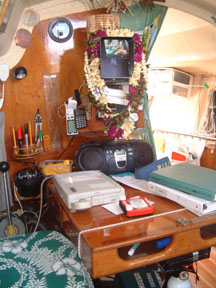 Wildflower's interior 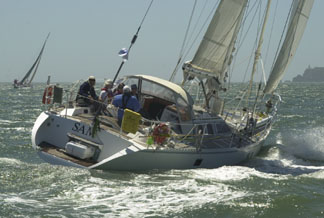 SAM heading out the Gate |
Profligate's Regress CompleteJune 2 - San Francisco Bay 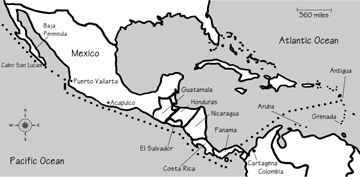
|
The Transat BeginsJune 2 - The Atlantic Ocean In the larger world of sailing, the big news is that the Transat Singlehanded Race the 'wrong way' across the Atlantic started from England over the weekend headed for a finish at Boston. There are 37 entries, with most of the attention on the 60-ft trimarans and the Open 60 monohulls. Despite the fact that the course is over 4,000 miles, many of the boats were over the starting line early. |